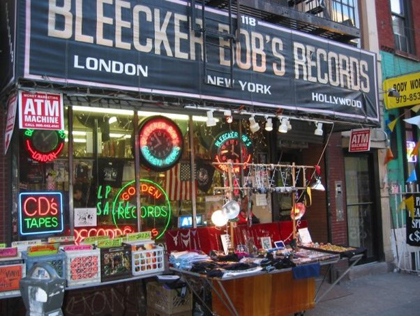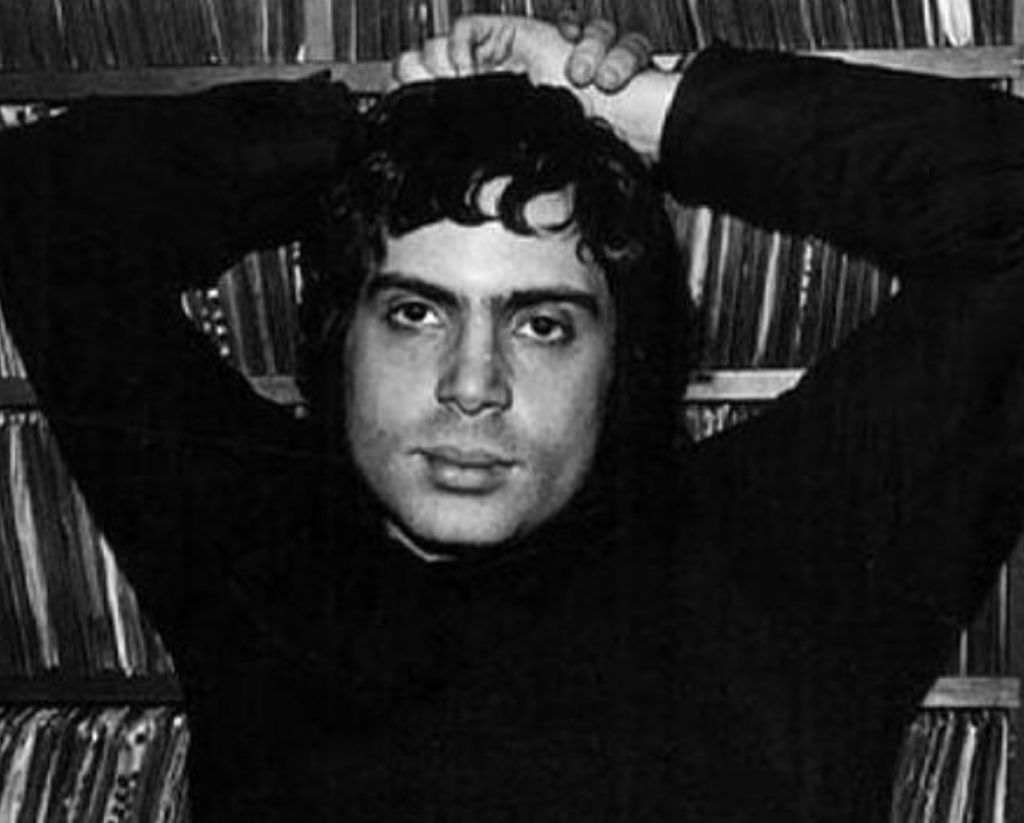
Robert Edward Plotnik, the former proprietor of Bleecker Bob’s Records, one of New York City’s most renowned independent record stores for nearly half a century, died Nov. 29 in New York City. His Greenwich Village shop was a mecca for collectors of rare and used vinyl, particularly those who sought out the punk and new wave sounds that came into fashion beginning in the mid-’70s. The cause was kidney failure. Plotnik had previously suffered an aneurysm in 2001. He was 75.
The closing of Bleecker Bob’s in April 2013, due to spiraling rent costs and the proliferation of online music sales, was the subject of a documentary film (scroll down to watch it), largely due to Plotnik’s oversized, routinely curmudgeonly personality. The shop, which had once been featured in an episode of Seinfeld and said to be the city’s longest-running indie record store, became a yogurt shop once the record store era ended.
In an article published in New York magazine following the 2013 closing, Marky Ramone, former drummer of the Ramones, recalled his Bleecker Bob’s experience. “The first time I was here,” he said, “I was with Dee Dee [Ramone]. We would do 150 shows a year—this is when I replaced Tommy—and we would come to buy vinyl, then transfer it onto cassette for the van. [Bob would] say, ‘Are you going to go cop drugs after this? Can I come? Fuck you!’ That was his shtick.”
Related: When Neil Young found a Neil Young bootleg
Celebrity rockers, including Frank Zappa and Jimmy Page, according to the New York piece, were often invited to perform guest stints behind the cash register, and Lenny Kaye, who became the guitarist for the Patti Smith Group, was an employee for five years before the band took off. Mick Jagger, David Bowie and Robert Plant were among its regular customers.

Plotnik, born Aug. 28, 1943, in Baltimore, and raised in New Jersey, had trained to become a lawyer but his love of doo-wop music led him to open his first record store, Village Oldies, on Bleecker street, in 1967. He relocated to another storefront on MacDougal Street and finally to 118 W. 3rd Street (the one-time home of the Night Owl Café, where the Lovin’ Spoonful had served as the house band in the mid-’60s). Although the store carried all types of music, it became known especially for its stock of hard-to-find punk/new wave, metal and R&B, particularly imports. He also sold posters, t-shirts and other rock artifacts.
Stories of Plotnik’s impatience with certain types of customers are legion—he was what New Yorkers like to call a “character”—but the store thrived in spite of (and partially because of) its owner’s volatile behavior.
In the ’80s, Plotnik relocated to Los Angeles and opened a short-lived branch of the shop on Melrose Ave., while the New York location remained open, run by long-trusted managers.
In the Brooklyn Vegan article, Blondie guitarist Chris Stein said, “Bleecker Bob’s record store was the first store I ever saw that was the model for the little indie record shops that are now everywhere. It was very funky, and Bob was a very specific odd character.”
Watch the documentary The Last Days of Bleecker Bob’s
[easy_sign_up title=”Sign up For the Best Classic Bands Newsletter”]
- Over Under Sideways Down: Making Sense of the Yardbirds’ Album Releases - 05/27/2024
- 17 Classic Chuck Berry Covers - 05/18/2024
- ‘Brandy’ by Looking Glass (It’s a Fine Song) - 05/18/2024

